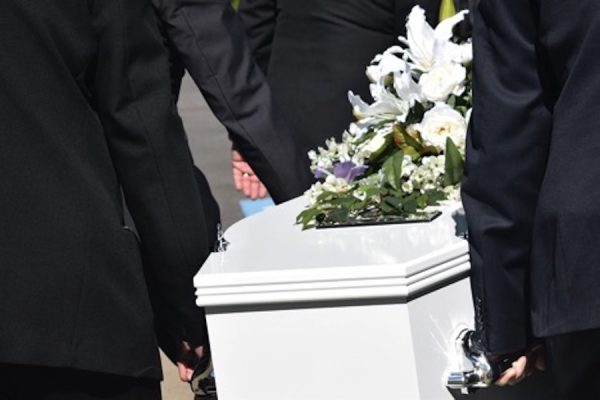6 Practicalities to Consider After a Loved One’s Death

That can be challenging enough, but if you have to handle practicalities after the passing of someone close to you, the initial days and weeks after the death can be even more mentally and emotionally demanding. But by being aware of what practicalities you need to take care of, you can reduce your stress levels and deal with those practicalities better.
Here are six of the most important practicalities you may need to consider.
1. Getting a Legal Pronouncement of Death
If your loved one has died in a hospital or a nursing home where doctors are present, the staff at the facility will handle the legal pronouncement of death, which is the first step in getting a death certificate. If your loved one has died at a hospice, a nurse at the facility will deal with the pronouncement of death.
But if your loved one has died at home, you need to call 911 as soon as possible to get a medical professional to declare the person’s death. The medical professional will arrange to have the person’s body transported to a hospital and moved on to a funeral home.
2. Notifying the Family
The next practicality you will need to handle is notifying the family and close friends of the deceased person. Making that first call is sure to be difficult, but it’s better to contact the person’s loved ones sooner rather than later.
There are no rules for who you should contact first or what you should say. Just go with what feels right.
3. Seeking Compensation for Wrongful Death
If your loved one died due to something like medical malpractice, negligence, or an accident in which a third party was at fault, you have the opportunity to seek compensation.
The first step is to get in touch with a local lawyer who you can discuss the case with. There are plenty of good California lawyers out there. While if you’re based in Chicago, for example, you could contact the Chicago wrongful death lawyer, Adam Zayed.
By pursuing a lawsuit, you can bring the responsible party to account and gain damages to cover the costs of things like medical expenses and lost income.
4. Honor Your Loved One’s End of Life Wishes and Make Funeral Arrangements
There will be various practicalities to take care of ahead of the funeral. The first thing you need to do is know whether your loved one has made a will and last testament or another document that outlines the person’s wishes.
You should check whether your loved one wanted to donate his or her organs, too. If there is no documentation regarding how to honor your loved one’s end-of-life wishes, the person may have verbally communicated with you, a family member, or a professional healthcare member of staff about his or her wishes.
If your loved one has never talked about how he or she would like funeral arrangements to be conducted, including whether burial or cremation is preferred, you should talk with family members and/or friends of the person to discuss options and come up with suitable arrangements.
Make sure you take things like religious preferences into account, too.
5. Look After Your Loved One’s Property
With so much going on, mentally, emotionally, and practically, after your loved one’s death, it can be easy to overlook small but important tasks.
For instance, it is crucial that you or a family member secures your loved one’s property. You should make sure his or her home and car are locked and it is a good idea to move valuables to a safe place.
You may also need to water plants, empty the refrigerator, and care for pets. With regard to the latter, remember dogs and cats can grieve too, so it is important to make sure they are looked after, either by family members, friends, or a kennel, that will be able to comfort them.
You could even look after your loved one’s pets yourself. After all, pets can help people to heal.
Also, make sure you set up a forward mail system so that mail does not pile up at your loved one’s property, as a pile-up of mail can advertise that the property is empty, which could encourage burglars.
6. Publish an Obituary
You may not know everyone or be able to get in touch with everyone who knew your loved one after the death, so it is important that you publish an obituary so that people in your loved one’s life know he or she has passed.
An obituary is also your opportunity to honor your loved one. Discuss what to say in the obituary with your loved one’s family and close friends to get every line of text just right.




















